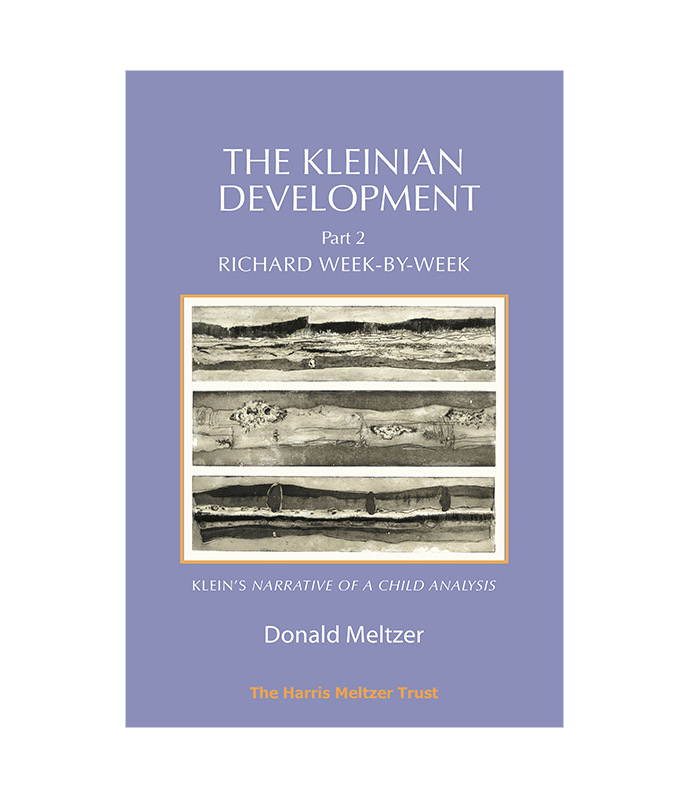Meltzer describes the series of lectures on Freud, Klein and Bion known as The Kleinian Development as both a quest for personal integration into some kind of ‘combined internal psychoanalytic object’, under whose aegis he personally could aspire to work, and as a vademecum for students. They were originally delivered to students at the Institute and at the Tavistock, specifically with the aim of demonstrating the logical development of that line of psychoanalytic practice. Seeking for this logical development reveals ‘an unfolding of method, leading to discovery of new realms of phenomena, generating in turn new models of the mind, which then modify method, etc.’
Richard Week-by-Week represents a unique and innovative approach to teaching the insights and techniques of Kleinian psychoanalysis, with Mrs Klein herself as teacher and learner at the same time. The Narrative of a Child Analysis offers a unique opportunity to watch Mrs Klein at work in the whitehot environment of the play-consulting room, pushing the boundaries of her conceptual tools whilst remaining acutely sensitive to the needs and sensibilities of the child and the transference emotions which are always at the forefront of her attention.
Meltzer’s own love and admiration for Mrs Klein shines throughout his critique of the Richard story, making this probably his most personal and passionate book, a tribute to both his own analyst and to the analytic process.




Debbie Hindle, Organising tutor, Scottish Institute of Human Relations –
‘Meltzer’s beautifully written text traces a line of development in psychoanalysis from Freud through Abraham to Klein and Bion, focusing on their methods of observation, clinical work and emerging theories. By highlighting points of congruence and difference and significant shifts in understanding, he outlines a continuity of clinical method and thought that has come to be known as the “Kleinian Development”. This text is an invaluable companion to the readings of Freud, Klein and Bion for all students of psychoanalysis, for clinicians and for all those interested in the development of psychoanalytic thinking.’
Grete Tangen Andersen, Morten Andersen, Jon Morgan Stokkeland, Lilian Stokkeland, Eirik Tjessem (The Meltzer Study Group, Stavanger, Norway) –
‘In Part 2, a week-by-week account of Klein’s “Narrative of a Child Analysis”, her clinical notes provide a rare opportunity to get very close to the clinical process. Meltzer throws new light on this material and shows the development in Kleinian and post-Kleinian thinking through the oscillations between clinical observations and model-making.’
Kate Carling, Consultant child and adolescent psychotherapist, Oxford –
‘In these books as in his talks Meltzer offers the benefit of his observational skill and sometimes startling intuitions. For clinicians, whether students of the psychoanalytic method or experienced practitioners, this work provides a source of enlightenment which will become increasingly satisfying the more it is read.’